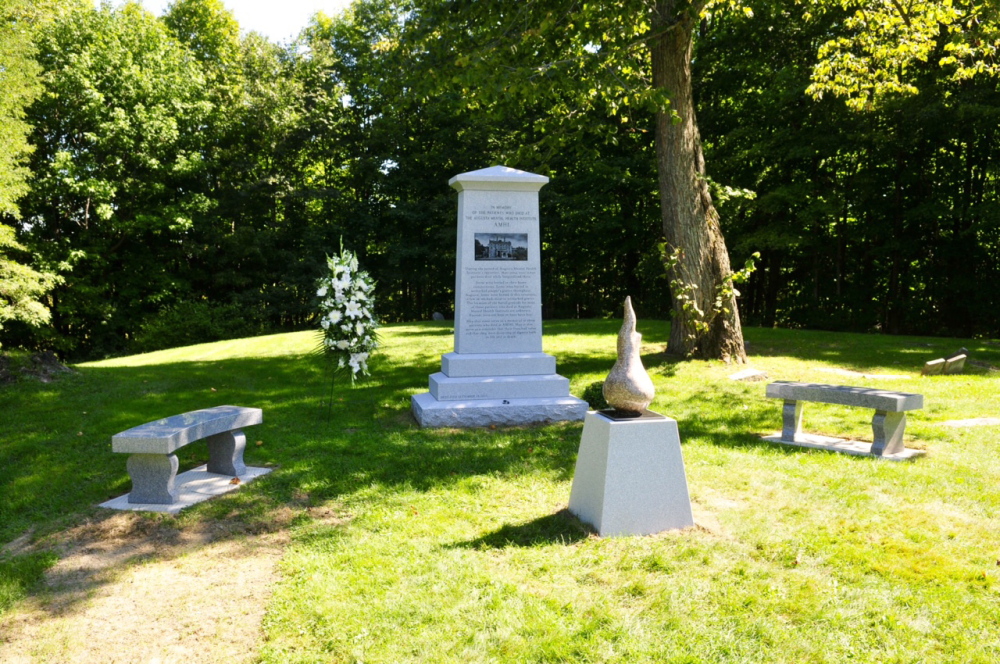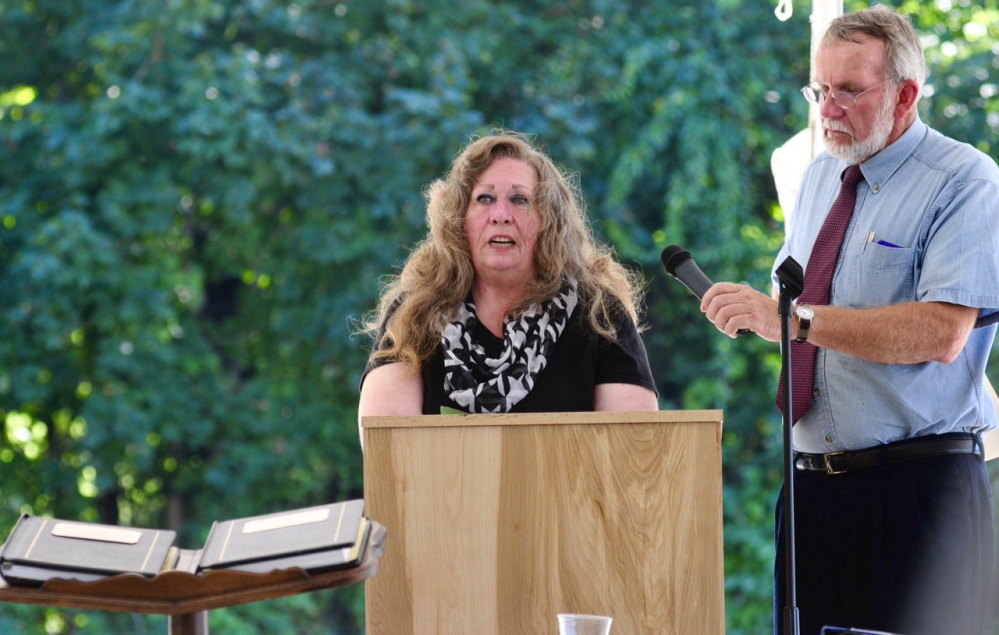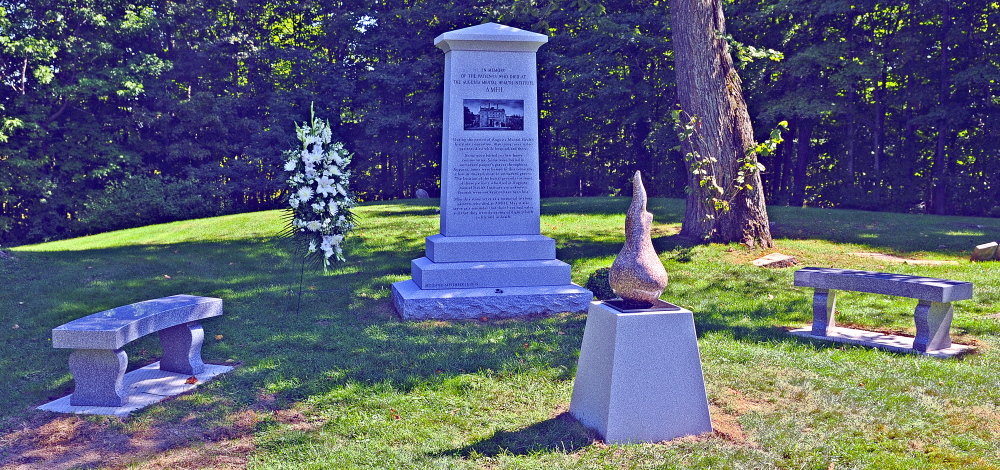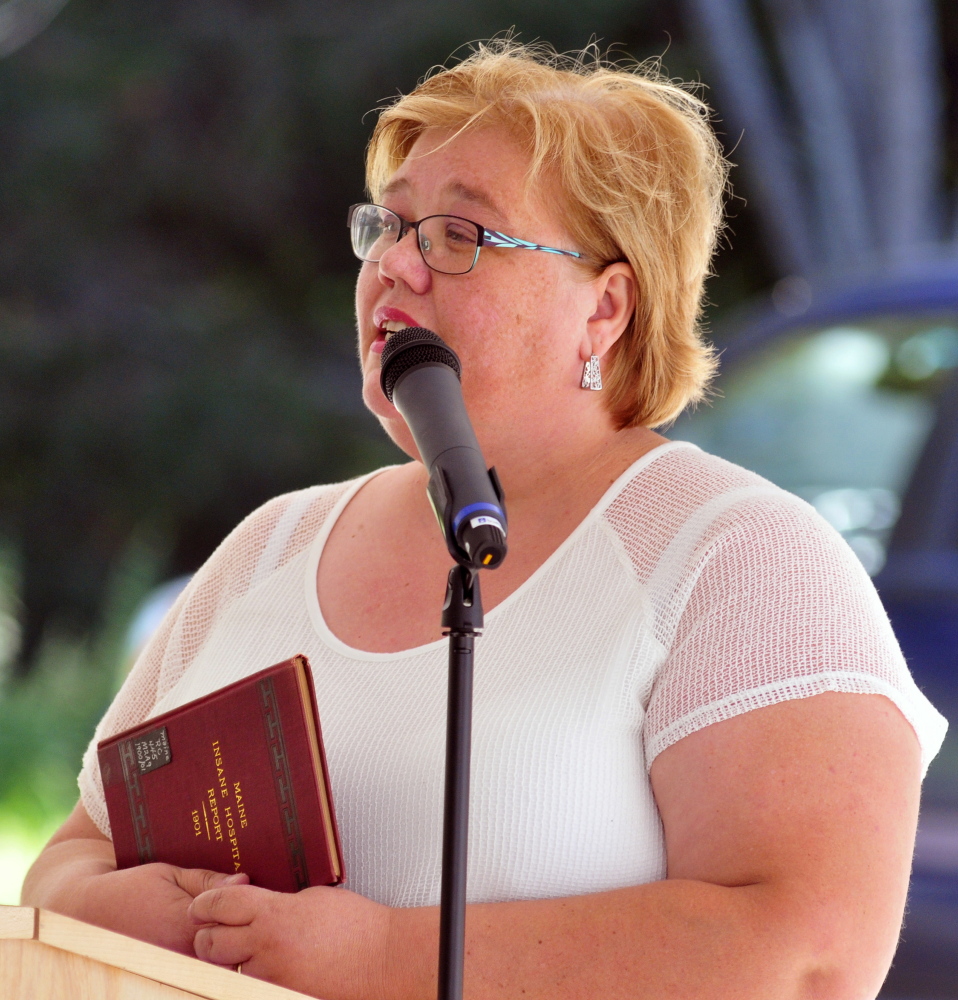AUGUSTA — They were, by and large, banished from their communities long before they died, so their deaths slipped by without much notice.
In their former lives they had been mothers or fathers, the craftsman down the street or the seamstress next door. But once they arrived at the Augusta Mental Health Institute, they became nothing more than inmates. And that’s all they were when they died as wards of the state, which was supposed to protect them and help them get better.
Instead, their names and their lives were all but erased from history, except for the names recorded in logs kept for statistical purposes. Nearly 12,000 of them ended up that way, buried somewhere in unmarked pauper’s graves.
Their stories will remain forever untold, but their names, at least, have been resurrected after a more than 10-year effort to identify the patients who died at AMHI during its 165-year history.
Those responsible for The Cemetery Project, along with Gov. Paul LePage and other state officials, dozens of mental health advocates and former AMHI employees, finally honored those 11,647 patients with a ceremony Friday to unveil a memorial erected in Cony Cemetery, the plot of land across Hospital Street from the complex where many of the dead were interred.
“They are no longer forgotten,” said Laura Wilder, who researched historical documents to collect the names. “They have been returned to us.”
The effort to research, document and memorialize patients who died at AMHI began in 2000. The Cemetery Project Committee hired Wilder to pore over old, scattered AMHI records to determine how many patients died there before the facility closed in 2004.
AMHI officials at first indicated there were just a few people who died in their care, but Wilder’s research eventually would uncover more than 11,000.
Almost all were buried without a marker, leading to Wilder’s conviction, based on documentation and staff interviews, that there is at least one mass burial site on AMHI grounds.
LePage, one of nearly a dozen speakers at the event, said he shared in the disappointment of the families of the lost patients and offered his apology on behalf of the state.
“Moving forward, the state of Maine needs to do, and will do, the right thing,” he said. “We often hear black lives matter, police lives matter; ladies and gentleman, all lives matter. It’s high time we acknowledged our mistakes and do the right thing.”
Peter Driscoll, a member of the Maine Cemetery Project Committee, said in a recent news story that the memorial is “not about blaming anybody,” but about honoring the dead and recognizing that every life has honor and dignity.
“Today we have an opportunity to heal a wound that’s been open for 170 years,” Driscoll said Friday. “It’s a glorious day.”
Consumer advocate Karen Evans, a former AMHI patient, kicked off the Maine Cemetery Project after attending a national convention and learning of similar efforts going on in states across the country. She returned to Maine driven to locate and honor the lost AMHI patients.
Evans, who said she has experienced firsthand the shame and rejection that often comes with mental illness, said the AMHI patients were forgotten because they were considered lesser human beings.
“I’m so proud to be here today and be part of this event,” Evans said. “I believe every member of our community deserves to be treated with dignity and respect.”
Maine Health and Human Services Commissioner Mary Mayhew said people believed 150 years ago that people with mental illness should be institutionalized. Mayhew said lawmakers, and society as a whole, must be careful never to slip back into that mentality.
“It’s a mentality that has not been entirely eradicated today,” Mayhew said, adding that treatment leading to health and a return to society should always be the overriding goal.
“The reality is recovery is possible,” Mayhew said. “We see evidence of this each and every day.”
Wilder said those who founded AMHI in 1840 shared Mayhew’s conviction. It was created to be a place where those struggling with mental illness would be treated with care and with a goal of recovery.
“AMHI began with such hope,” Wilder said. “Over time that hope was lost. What people wanted was to get better and go home. Nothing has changed.”
Jay Harper, superintendent of Riverview Psychiatric Center, which replaced AMHI in 2004, said there is still an effort to keep patients, and their stories, locked away from the community. Such efforts only hurt the patients in the long run, Harper said. He believes those stories need to be brought out into the open so that all might feel the effect.
“There’s little difference between a patient and a nonpatient,” Harper said.
Simonne Maline, executive director of the Consumer Council System of Maine, held up a 1901 superintendent’s report from AMHI, then called the Maine Insane Hospital, and read from some of its pages. The patients, who were called inmates, were diagnosed with ailments and treated with therapies that are now, at best, unfamiliar. People were committed to AMHI for reasons that now seem bizarre, including financial trouble, epilepsy and even sunstroke. The report indicates that AMHI became a tourist attraction, of sorts, as people came to see the immaculately kept grounds and the people who lived there.
“Like people with mental health challenges were something to go look at,” Maline said.
Among the crowd that gathered for Friday’s ceremony where twin sisters Eva Burns of Union and Annie Fitzgerald of Rockport. Each of the women spent 20 years working at AMHI beginning in the 1960s.
“It’s nice they’re being remembered,” Fitzgerald said. “A lot of them sat there and there was nobody to come and visit. It was hard for them, I’m sure.”
The ceremony, and the memorial it celebrated, were long overdue, they said.
“A lot of the patients were forgotten,” Burns said. “They need something to be recognized. They’re human beings, too.”
Craig Crosby can be contacted at 621-5642 or at:
ccrosby@centralmaine.com
Twitter: CraigCrosby4
Send questions/comments to the editors.






Success. Please wait for the page to reload. If the page does not reload within 5 seconds, please refresh the page.
Enter your email and password to access comments.
Hi, to comment on stories you must . This profile is in addition to your subscription and website login.
Already have a commenting profile? .
Invalid username/password.
Please check your email to confirm and complete your registration.
Only subscribers are eligible to post comments. Please subscribe or login first for digital access. Here’s why.
Use the form below to reset your password. When you've submitted your account email, we will send an email with a reset code.